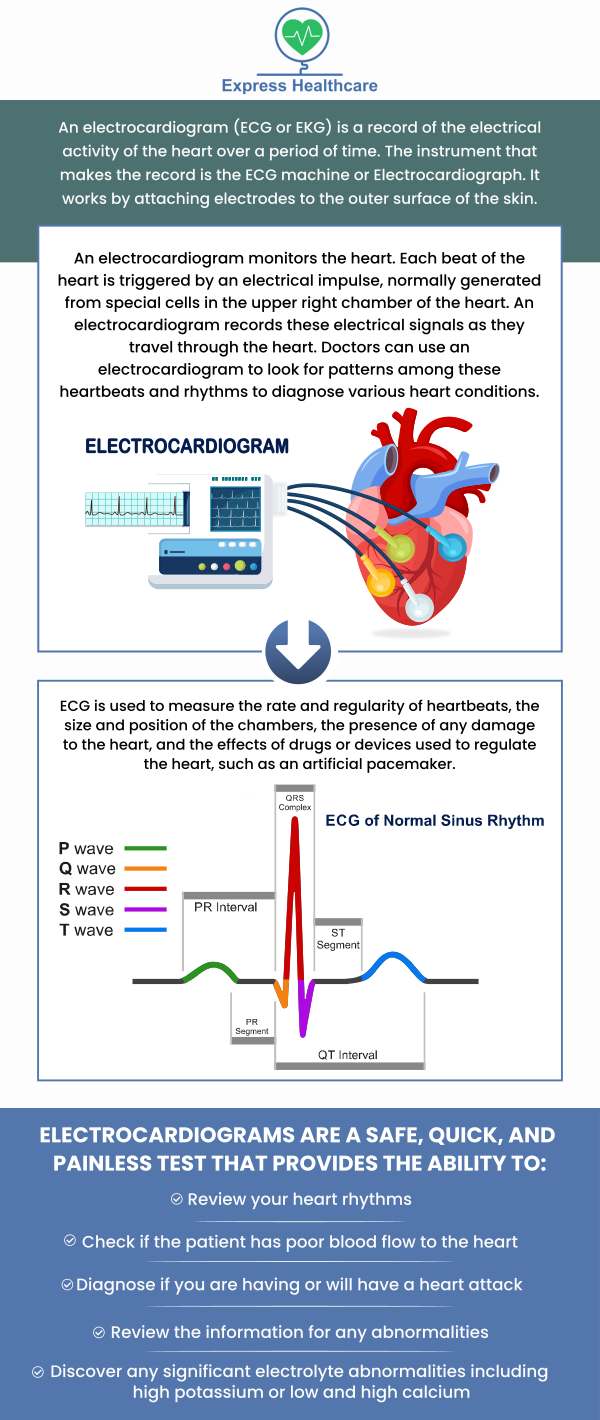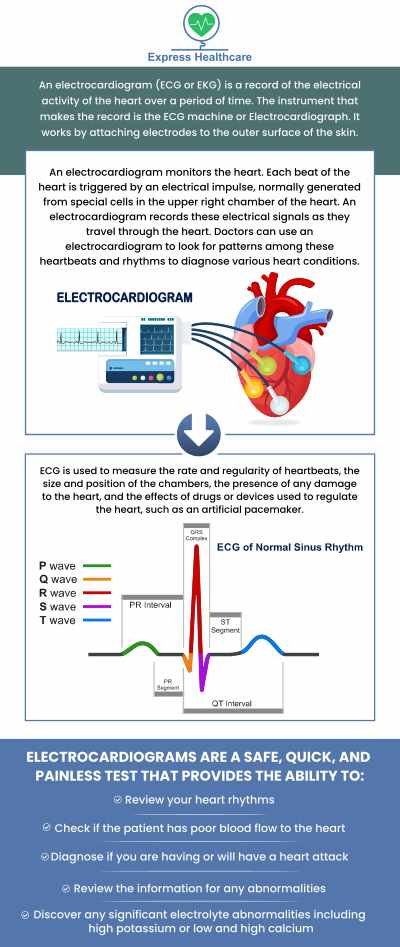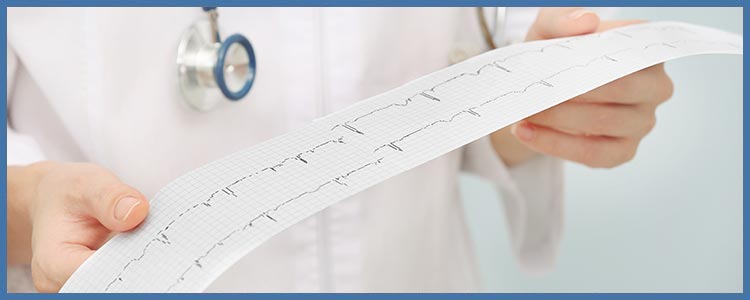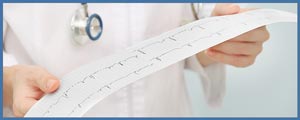How Often Should I Get an Electrocardiogram (ECG)?
An electrocardiogram (ECG) test provides significant information about the electrical activity of the heart, which aids in identifying and diagnosing numerous cardiac problems. Regular ECG tests can be an important or even helpful measurement, especially for people with specific risk factors and heart illnesses, as they help to monitor their heart health. ECG testing is available at Express Healthcare LLC. For more information, contact us today or schedule an appointment online. We are conveniently located at 4701 Melbourne Place College Park, MD 20740.





Additional Services You May Need
▸ EKG, Stress Tests, Cardiology
▸ Physical Therapy
▸ Internal Medicine
▸ Urgent Care
▸ Vaccines & Immunizations
▸ On-Site Lab Screening
▸ X-Ray & Imaging
▸ Women’s Health
▸ Occupational Health




